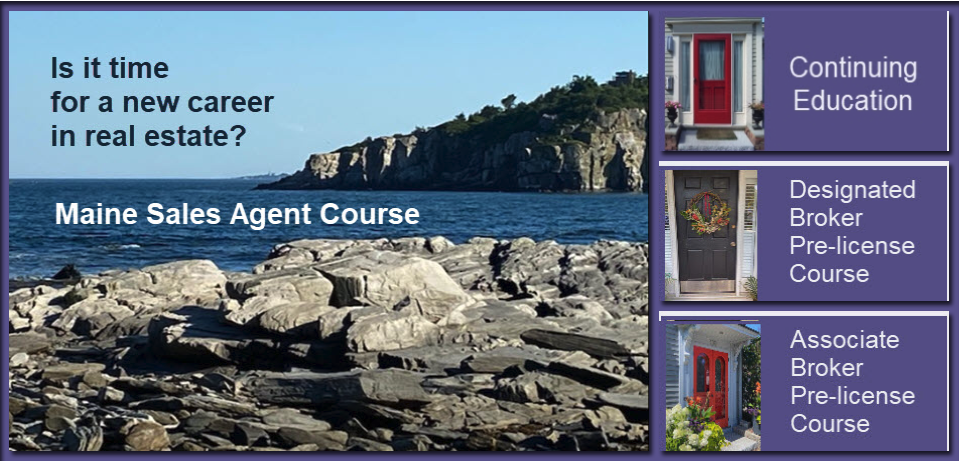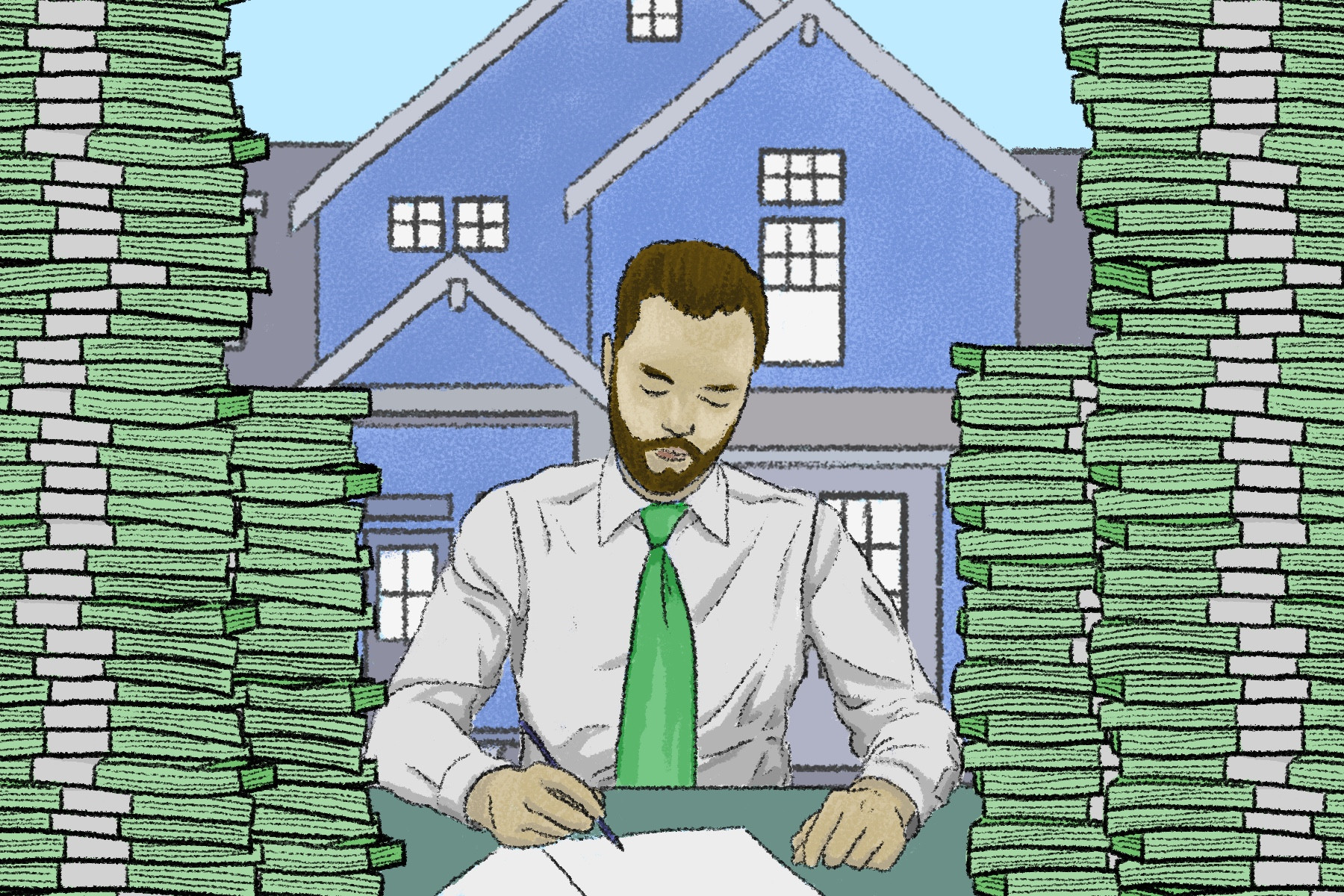
In Minnesota, you can get a real estate license by meeting certain requirements. Minnesota Commerce Department is committed to ensuring that real estate agents can work in the state. The requirements include being at least eighteen years old and U.S. citizens or lawfully admitted aliens. Although citizenship is not an issue for most people, it could be a problem for those with criminal histories, unpaid judgments or disciplinary actions that are against their professional license. Unlicensed real estate activity is also a reason to not be granted a real estate license.
Pre-license education
Pre-license education is a crucial part of becoming licensed in Minnesota as a real estate agent. It can increase the chances that you pass the exam and avoid having to retake it. License as a Minnesota real-estate agent takes around four months. Pre-licensing is contingent on passing the exam, passing the education course and being sponsored by a licensed brokerage.
An excellent way to begin your education in Minnesota for your real-estate license is to take an online pre-license course. You can complete three 30-hour courses that will help you earn your license. These courses cover topics like valuation, financing, contracts and real estate principles. The course can be completed online by ContinuingEd Express. They offer both live streaming and online courses.

Education requirements for continuing education
Real estate salespersons in Minnesota must complete at least fifteen hours of continuing education each year. This equates to 30 hours total over a 2-year renewal period. There are several ways to earn the required real-estate CE. These include online classes, webinars on demand, and live courses. Kaplan offers both online and live courses to fulfill the state’s continuing education requirements. Kaplan's online courses qualify for real estate CE credit of 3.75 hours.
Minnesota Real Estate Commission adopts a new system for real-estate CE credit. This means that real-estate licensees must complete a minimum of eight hours of continuing education within a single day but not more than 15 hours over a 24-hour period. In order to meet Minnesota's continuing education requirements, brokers and salespeople must complete a pre-licensing CE module each year. These courses provide 3.75 hours CE credit and must be completed prior to June 30, 2022. You can also take the course online, even if you don't have a live instructor. The majority of courses are self-paced. Some are also live-streamed. Exam prep courses cover both national and state sections of the Minnesota licensing exam.
Exam
Minnesota real estate licenses must be obtained in order to be allowed to practice. This helps to protect the public by ensuring the individual has a certain level competence. The state regulatory agency establishes a standard for safe practices. The exam is designed to confirm that an individual has met those standards. Pearson VUE administers Minnesota's real estate licensing examination.
Minnesota real estate license applicants must have passed a prelicense education course and a state exam to be eligible for it. The state requires that applicants be at least eighteen years of age and a lawful permanent resident of the United States. Minnesota has reciprocity agreements with several other states, including Wisconsin. Minnesota has reciprocity agreements with several other states. You do not need to take any prelicensing courses if you're a licensed agent in one of these states. Apply through the PULSE Portal, and you will receive a letter certifying that your license is current. Then, you can take the state portion of exam. In Wisconsin, however, you must take a 13-hour Wisconsin-to-Minneseta prelicensing course.

Prices
To become a Minnesota real estate agent, the first step is to get a license. The process is virtually completely online, with the exception of the actual exam, which must be taken in person. This article will provide you with the specifics of the process, including how much it will cost and how long it will take. We will also provide some resources and information about exam content.
Minnesota requires that all licensed real estate agents have completed at least 90 hours in pre-licensing training. These can be obtained online or through classroom courses. Online on-demand courses are the most affordable. A typical package will include three courses. These typically cost between $200 and $300.
FAQ
How much will it cost to replace windows
The cost of replacing windows is between $1,500 and $3,000 per window. The cost of replacing all your windows will vary depending upon the size, style and manufacturer of windows.
Is it better to buy or rent?
Renting is generally cheaper than buying a home. But, it's important to understand that you'll have to pay for additional expenses like utilities, repairs, and maintenance. You also have the advantage of owning a home. For instance, you will have more control over your living situation.
How can I get rid of termites & other pests?
Over time, termites and other pests can take over your home. They can cause damage to wooden structures such as furniture and decks. You can prevent this by hiring a professional pest control company that will inspect your home on a regular basis.
Can I buy my house without a down payment
Yes! There are many programs that can help people who don’t have a lot of money to purchase a property. These programs include FHA, VA loans or USDA loans as well conventional mortgages. For more information, visit our website.
How much money will I get for my home?
The number of days your home has been on market and its condition can have an impact on how much it sells. Zillow.com reports that the average selling price of a US home is $203,000. This
How much money do I need to save before buying a home?
It depends on the length of your stay. Start saving now if your goal is to remain there for at least five more years. However, if you're planning on moving within two years, you don’t need to worry.
Statistics
- Over the past year, mortgage rates have hovered between 3.9 and 4.5 percent—a less significant increase. (fortunebuilders.com)
- This means that all of your housing-related expenses each month do not exceed 43% of your monthly income. (fortunebuilders.com)
- 10 years ago, homeownership was nearly 70%. (fortunebuilders.com)
- When it came to buying a home in 2015, experts predicted that mortgage rates would surpass five percent, yet interest rates remained below four percent. (fortunebuilders.com)
- Some experts hypothesize that rates will hit five percent by the second half of 2018, but there has been no official confirmation one way or the other. (fortunebuilders.com)
External Links
How To
How to Manage A Rental Property
It can be a great way for you to make extra income, but there are many things to consider before you rent your house. We will show you how to manage a rental home, and what you should consider before you rent it.
This is the place to start if you are thinking about renting out your home.
-
What factors should I first consider? Before you decide if your house should be rented out, you need to examine your finances. You may not be financially able to rent out your house to someone else if you have credit card debts or mortgage payments. Check your budget. If your monthly expenses are not covered by your rent, utilities and insurance, it is a sign that you need to reevaluate your finances. This might be a waste of money.
-
How much is it to rent my home? There are many factors that go into the calculation of how much you can charge to let your home. These factors include your location, the size of your home, its condition, and the season. You should remember that prices are subject to change depending on where they live. Therefore, you won't get the same rate for every place. Rightmove reports that the average monthly market price to rent a one-bedroom flat is around PS1,400. This means that your home would be worth around PS2,800 per annum if it was rented out completely. This is a good amount, but you might make significantly less if you let only a portion of your home.
-
Is it worth it? It's always risky to try something new. But if it gives you extra income, why not? Before you sign anything, though, make sure you understand exactly what you're getting yourself into. Not only will you be spending more time away than your family, but you will also have to maintain the property, pay for repairs and keep it clean. Before signing up, be sure to carefully consider these factors.
-
Are there any benefits? There are benefits to renting your home. There are many reasons to rent your home. You can use it to pay off debt, buy a holiday, save for a rainy-day, or simply to have a break. Whatever you choose, it's likely to be better than working every day. And if you plan ahead, you could even turn to rent into a full-time job.
-
How can I find tenants? Once you've made the decision that you want your property to be rented out, you must advertise it correctly. You can start by listing your property online on websites such as Rightmove and Zoopla. Once potential tenants reach out to you, schedule an interview. This will help you assess their suitability and ensure they're financially stable enough to move into your home.
-
What are the best ways to ensure that I am protected? You should make sure your home is fully insured against theft, fire, and damage. In order to protect your home, you will need to either insure it through your landlord or directly with an insured. Your landlord may require that you add them to your additional insured. This will cover any damage to your home while you are not there. This does not apply if you are living overseas or if your landlord hasn't been registered with UK insurers. In this case, you'll need to register with an international insurer.
-
Sometimes it can feel as though you don’t have the money to spend all day looking at tenants, especially if there are no other jobs. However, it is important that you advertise your property in the best way possible. Post ads online and create a professional-looking site. It is also necessary to create a complete application form and give references. Some people prefer to do everything themselves while others hire agents who will take care of all the details. It doesn't matter what you do, you will need to be ready for questions during interviews.
-
What happens after I find my tenant?After you've found a suitable tenant, you'll need to agree on terms. You will need to notify your tenant about any changes you make, such as changing moving dates, if you have a lease. If this is not possible, you may negotiate the length of your stay, deposit, as well as other details. While you might get paid when the tenancy is over, utilities are still a cost that must be paid.
-
How do you collect rent? When the time comes to collect the rent, you'll need to check whether your tenant has paid up. You'll need remind them about their obligations if they have not. Any outstanding rents can be deducted from future rents, before you send them a final bill. You can always call the police to help you locate your tenant if you have difficulty getting in touch with them. They won't normally evict someone unless there's been a breach of contract, but they can issue a warrant if necessary.
-
How do I avoid problems? Renting out your house can make you a lot of money, but it's also important to stay safe. Consider installing security cameras and smoke alarms. Check with your neighbors to make sure that you are allowed to leave your property open at night. Also ensure that you have sufficient insurance. Finally, you should never let strangers into your house, even if they say they're moving in next door.